The pandemic is declining, vaccination rates are rising, and mandatory mask orders are becoming more optional across the country. Still, millions of people are wearing masks every day, for their protection or the protection of other people. This means millions of people are potentially suffering from one of the latest skin ailments to come from masks: “mask lip.”
Mask lip is simply dry, cracked, chapped lips that come about due to the environment inside a mask. While it might not seem like lips can dry out while they’re inside a mask trapped with your breath, the effect is essentially the same.
What is Mask Lip?
Mask lip is defined as an excessively dry or chapped lip, caused by mask usage. It’s slowly entering modern discourse, as dermatologists like Dr. Tijion Esho identify it more and more.
Masks are important, but wearing them creates an environment that is ideal for a wide range of ailments of the skin. We’ve all heard about the problems with acne caused by mask usage. We’ve all had that irritation across the bridge of our nose, behind the ears, or at other pressure points where the mask sits.
Perhaps worse is the risk for diseases to spring up. A moist environment, the warmth of your breath, and the contamination that comes from the mouth, from food, all can contribute to disease and illness. One of the rising illnesses is a fungal infection which, while easily treatable, is still annoying, painful, and unsightly.
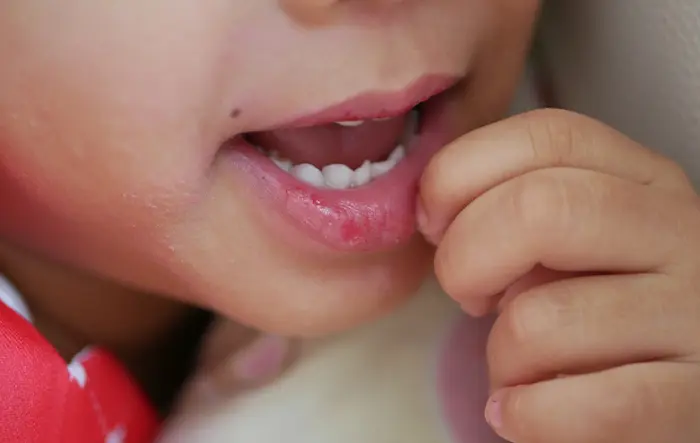
Luckily, these kinds of infections are still relatively rare. Mask lip itself is just lips that have been damaged by moisture, the dissolving qualities of saliva, rubbing against mask material, and the environment.
So, how do you prevent the issue, or deal with it if you have it? There are a lot of possibilities.
Mask Factors
The first thing to do is make sure you’re wearing a good mask. In particular, the main thing you want to do is pick a mask that is made out of the right kind of fabric.

While an N95 mask can be an ideal mask when you’re operating at risk of contamination, cloth masks are sufficient for most other use cases. Whether or not you have a mask with a filter in it, you want one made out of the right kind of fabric to protect your face.
Harsh fabrics like wool are the worst. They rub, scratch, and irritate your skin, and are going to do more harm than good. Instead, opt for something like smooth cotton or silk. These fabrics are more slippery and smoother against the skin, which makes them better for facial use. Other fabrics, like cotton-nylon blends, are also great. You can read our full breakdown on mask fabrics here.
You should also make sure your mask fits properly. Try this experiment: when you breathe in and out, where does the mask move, and where does your breath go? If your breath goes in and out through the fabric, your mask is appropriately sized and fitted. If your breath goes out above your nose, back by your ears, or underneath your chin, you’re not protected by it. A mask only filters what passes through it, after all.
Your mask should be firm against your nose, cheeks, and chin, but not too tight. Too loose and it doesn’t protect you. Too tight and it irritates your skin. You want it just right, so you can breathe through the fabric and avoid irritating the skin of your face.
Additionally, make sure you’re washing your mask regularly. Dirty masks are one of the foremost causes of skin irritation, as bacteria and grime build-up on the inside of the mask and propagate. The best course of action is to wash your mask after every time you use it, though we all know that isn’t always possible. If you can, keep three or four masks in circulation, wearing each of them once, then washing them all. Alternatively, wear them and wash them in rotation, so you always have a clean one ready to go.
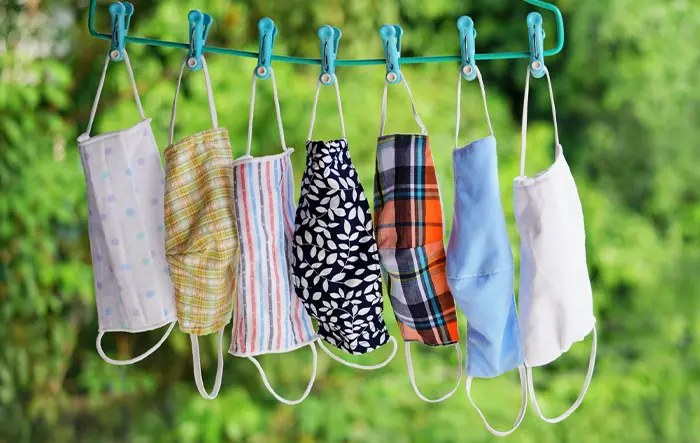
Another consideration is the age of the mask. We’re over a year into common mask-wearing, and some people haven’t replaced their first set of masks yet. Masks have a lifespan, and often that lifespan is measured in months at the most, and that’s with casual, occasional use. Some masks are even meant to be disposed of after a single use!
We have a guide on replacing masks but, to summarize it: replace your mask if your mask is damaged, if it’s wearing out or if it doesn’t filter anymore, if it starts to smell, if it’s harder to breathe through it, if you can’t clean it, or if it has stretched out. When in doubt, swap it out.
Preventative Skin Care
An ounce of prevention is worth a pound of cure. If you can prevent your lips from getting chapped in the first place, you won’t have to suffer through the recovery process. Some things you can do to help prevent lip irritation include:
- Exfoliation. Exfoliating your face is a general skin care tip that helps you keep your skin healthy, as well as young and supple. There are entire blogs out there dedicated to skincare, so there are plenty of guides. One thing they don’t often mention, though, is your lips. Avoid using harsh exfoliating chemicals on your lips! Instead, consider a sugar scrub made out of a bit of honey and a bit of sugar. Use a soft toothbrush to apply this to your lips and brush it around, then rinse it off. You shouldn’t do this too often, though. Once a week is fine.
- Apply a lip mask after exfoliating. A lip mask is a thicker treatment that is meant to be applied and left in place for anywhere from 20 minutes to overnight. It’s full of skin-restoring nutrients and moisturizers that penetrate deeply into the skin and help keep it healthy. Masks (the skincare routine), are similar to exfoliation; in which you should only apply them about once a week, typically after you exfoliate.
- Protect your lips. Almost all of us probably carry lip balm, chapstick, or another basic lip treatment. Make sure to apply this regularly, especially after exfoliating. If you don’t have one, you can pick up a basic lip balm from any convenience store. Alternatively, use a little bit of coconut oil; it’s a natural oil that helps keep your skin healthy when applied, and it won’t feel greasy or synthetic.
- Don’t forget UV protection. You never think of your lips as being susceptible to sunburn, but UV damage can lead to dry skin, which can be exacerbated by mask usage. Moreover, since you’re wearing a mask all the time, you might not think about the sun when you take it off. Consider finding a lip balm that includes UV protection, even if it’s a low SPF; anything is better than nothing.
- Avoid licking your lips. Saliva is built to break down the things it contacts, as part of the digestive process. Frequently licking your lips can slowly damage them over time. Additionally, as the saliva dries – which takes longer due to the moist environment of the mask – it dries out your lips. Frequent lip licking leads to chapped lips even in normal circumstances, and it’s even worse under a mask.
- Avoid lipstick. No one can see it anyway, and even if you can take your mask off in company, the people who see you aren’t likely to care all that much about your appearance. Lipsticks and other forms of makeup can be devastating to skin health unless you’re very careful, and it’s better to just ignore them if you can.
Another good idea is to take “mask breaks” whenever you can. Taking off your mask isn’t ideal when you’re in a crowded area or an enclosed, interior space. However, if you can step outside and a bit away from people to take it off, let it air out and dry a bit, and wash your face, you’re in a good space. The more you can let your face air out and your mask dry, the better off you’ll be with skincare.
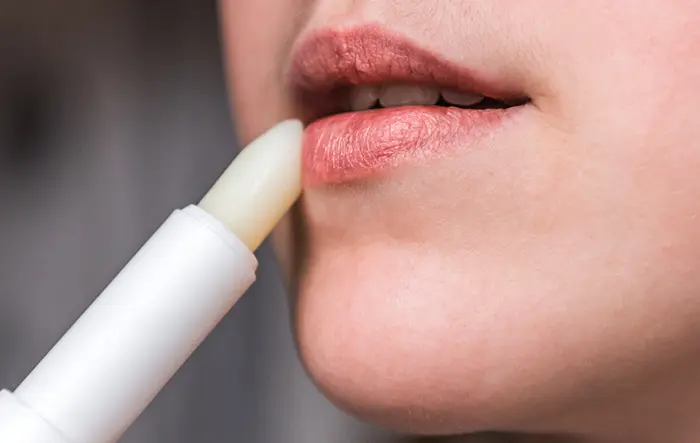
If that’s not all, another thing you can consider is a little Vaseline. Petroleum jelly is oil-based and helps seal in moisture. Do your lip scrub, put on your lip balm, then put a bit of Vaseline over top of it to seal it in. This combination should help you keep your lips happy and healthy.
Any time you’re going to wear a new cosmetic or skincare product, make sure to test it in a small and out-of-the-way place. Some people have sensitive skin and can be irritated by the products they use. Make sure you don’t have a potentially irritating reaction to the product you’ve found, before slathering it all over your face. You think chapped lips are bad, try hives on for size.
General Health Tips
Another tip you can carry with you, to help keep yourself healthy, is to stay hydrated. Wearing a mask helps retain some moisture, especially when you’re in a dry area or spending a lot of time in climate-controlled zones with dehumidifiers. However, you still lose moisture in other ways, and the summer will pull it right out of you if you’re not careful. Make sure you’re drinking plenty of water every day.
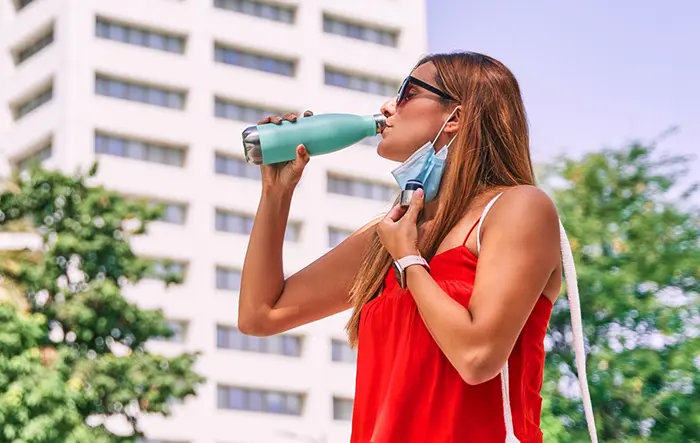
A healthy diet is also worthwhile. Chapped lips are a form of skin damage, and skin damage is generally quick to heal… if your body has the resources to heal it. Thus, make sure you’re giving it those resources. Avoid the processed foods and sugars. Especially avoid sugary beverages, as that encourages the development of bacteria in your mouth, which ends up on your lips while trapped under the mask. If you must consume a sugary beverage, consider carrying mouthwash or brushing your teeth afterward. And, of course, get plenty of vitamins and nutrients.
Smoking and alcohol are also bad for your skin and general health, so quit them if you can. Yes, it’s hard. Sure, “avoiding chapped lips” is far from the biggest reason to do it. Still, we think it’s worth mentioning.
Are Chapped Lips Dangerous?
One thing you might be wondering, after reading a big post about chapped lips, is how dangerous they are. Is a chapped lip something you should be concerned about, something you should talk to a doctor about, or just an irritation?
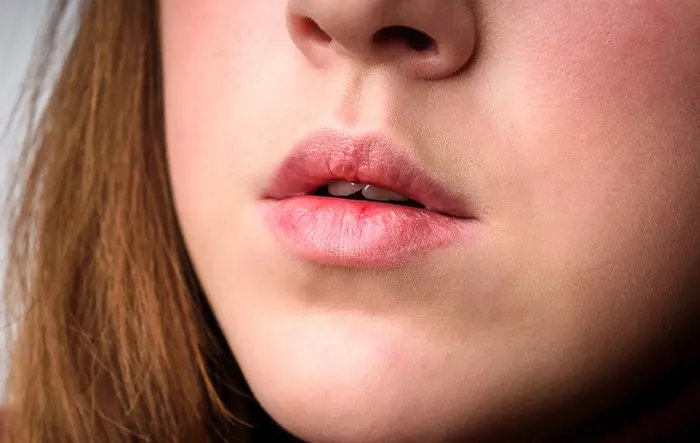
The truth is, 99% of the time it’s just a minor irritation. Your lips will be cracked, painful, and irritated for a few days while they heal, and then you’re fine. Chapped lips don’t scar, they don’t end up with blemishes, and they don’t cause major health problems. Usually.
Any time your skin is broken, it’s a potential vector for pathogens. Pathogens aren’t typically going to spend a lot of time on your lips, except when they’re trapped in a warm, moist environment, like the inside of your mask. If you wear masks for 6+ hours every day, you have an increased risk of skin conditions, infections, and diseases.
Even then, the chances of any major illness cropping up are very slim. Fungal infections are the most common, and can easily be diagnosed and treated by a general health provider. Other infections can be worse but are very rare, and as long as you’re not immunocompromised, you’ll probably be fine.
If you have concerns about sores, cracked lips, chapped lips, or signs of infection, it’s always better to talk with your doctor just in case. The worst-case scenario is a bit of a wasted trip and instructions to wear lip balm, but you could also be catching an infection before it becomes a great problem.
Chapped lips are not generally dangerous, they’re just irritating and occasionally unsightly. Taking proper care of your mask and your face is all you need to deal with the issue, and more extreme actions can be saved if you have recurring chapped lips or other long-term issues.
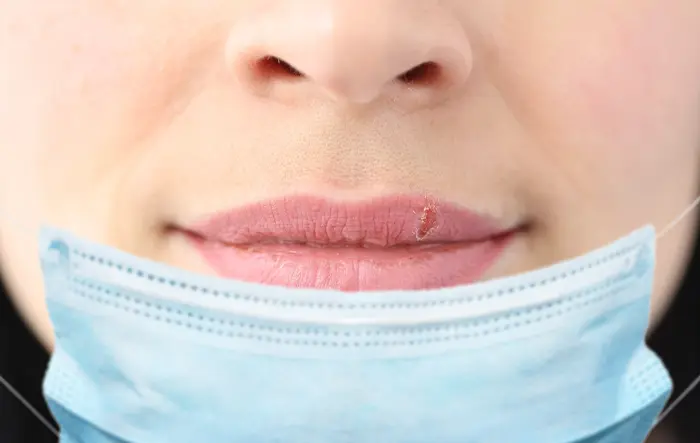
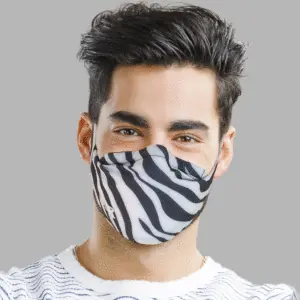
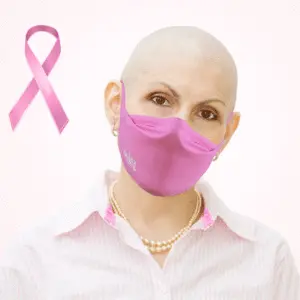
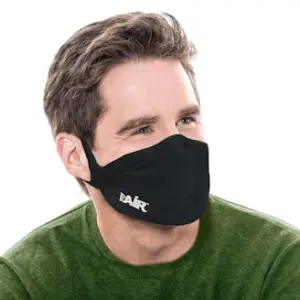
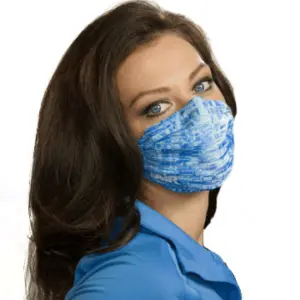

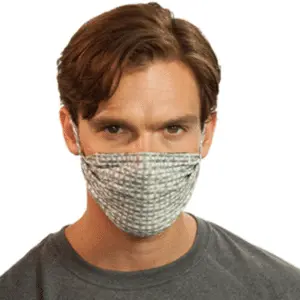
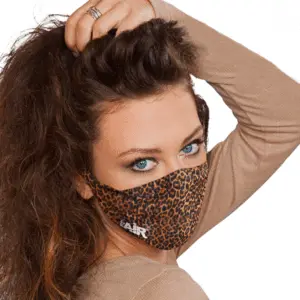
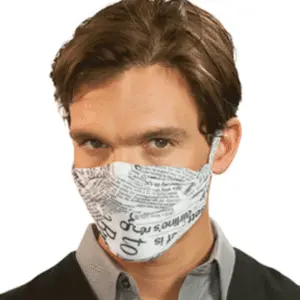
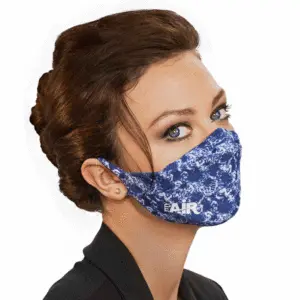
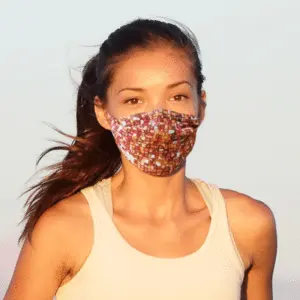
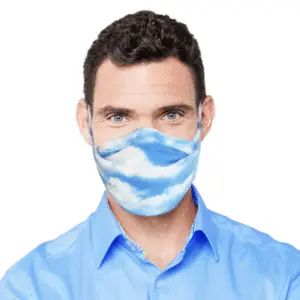
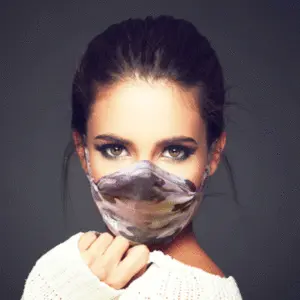
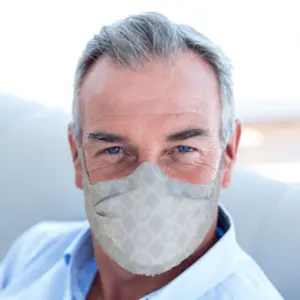
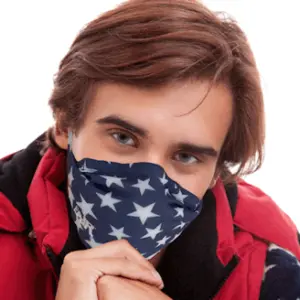
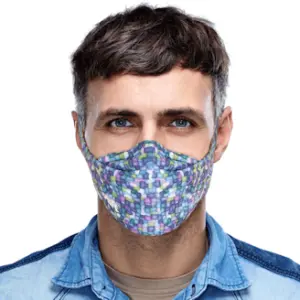

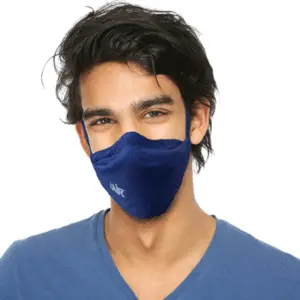
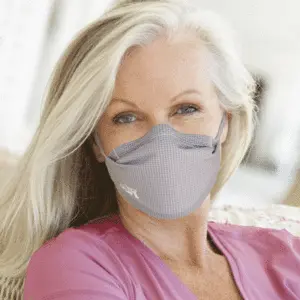
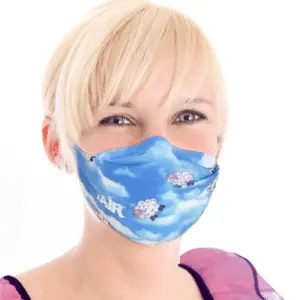
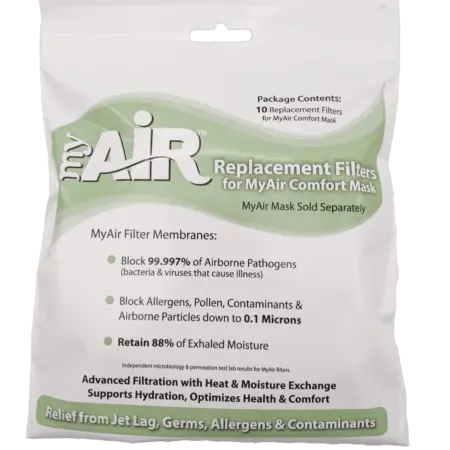
0 Comments